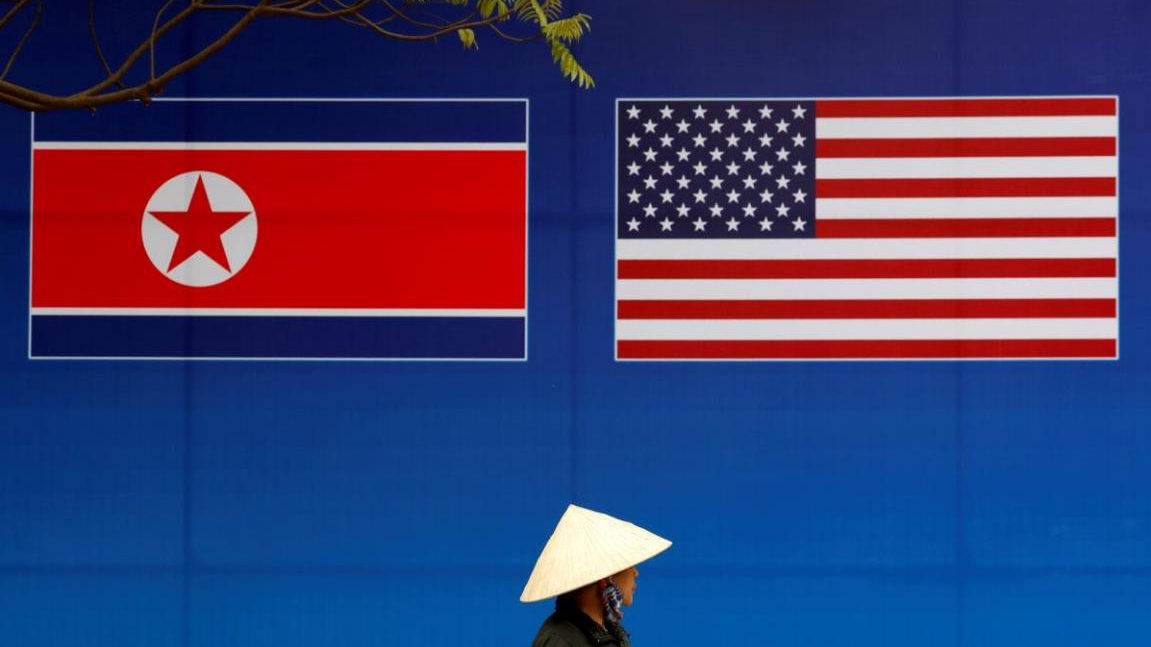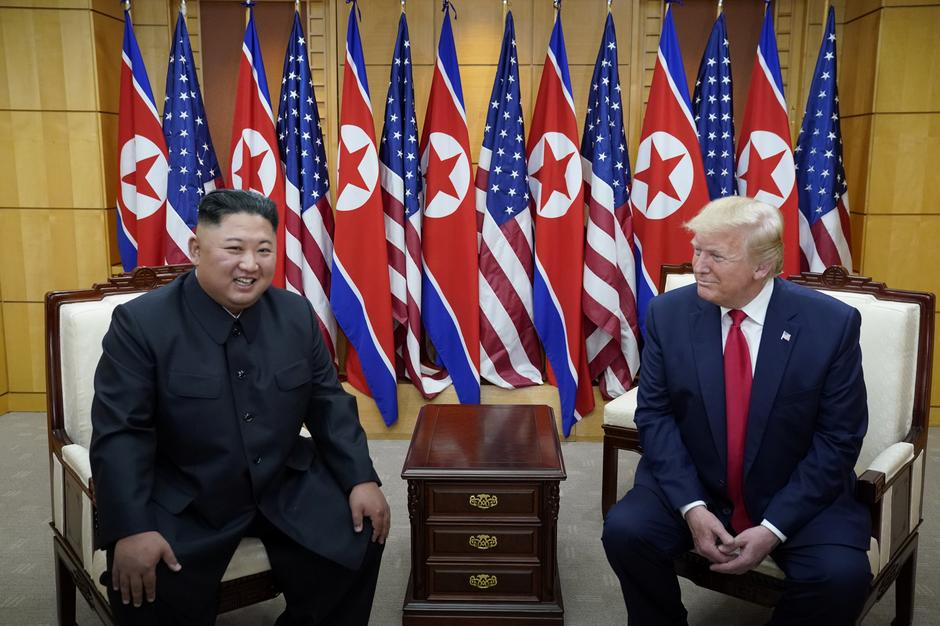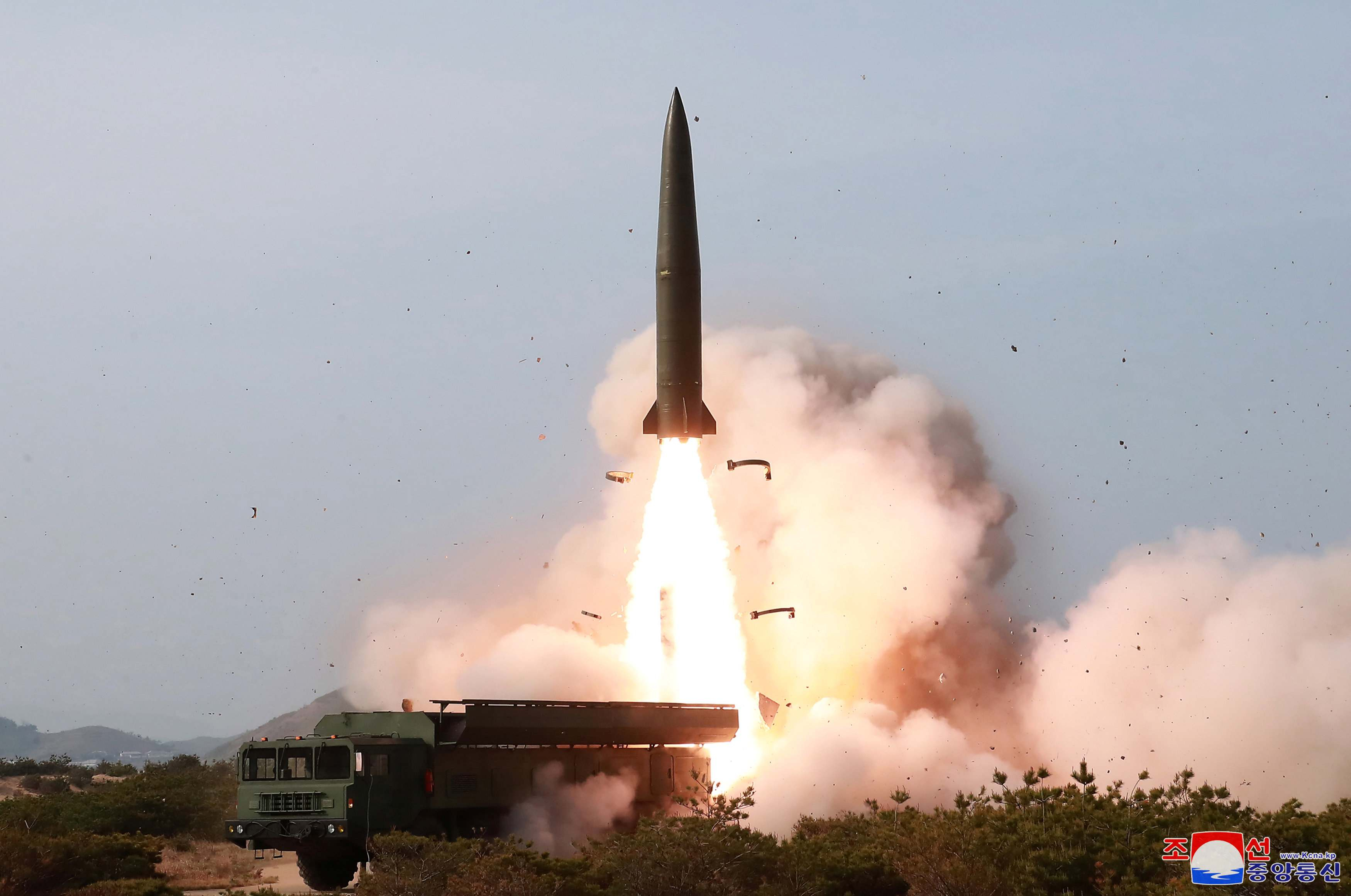

Editor's Note: Tom Fowdy is a British political and international relations analyst and a graduate of Durham and Oxford universities. He writes on topics pertaining to China, the DPRK, Britain and the United States. The article reflects the author's opinions and not necessarily the views of CGTN.
Several weeks ago the world heralded the moment when Donald Trump met with Kim Jong Un and became the first U.S. President to step inside of the DPRK.
Commentators hoped that the Kim-Trump summit in Panmunjom, requested by the President via a tweet, would give energy to restart stalled dialogue between Washington and Pyongyang following a prolonged stalemate.
However, nothing pertaining to U.S.-DPRK relations ever runs in a straight or idealistic way.
According to the South Korea's Joint Chiefs of Staff, on Thursday Pyongyang launched several projectiles into the East Sea from Wonsan, travelling a purported 430km.
Any keen observer of DPRK media would note the event was not a surprise.

U.S. President Donald Trump meets with DPRK leader Kim Jong Un at the Demilitarized Zone (DMZ) separating the two Koreas, in Panmunjom, June 30, 2019. /Reuters Photo
Two days' prior, KCNA gave focus to Kim Jong Un personally inspecting a new ballistic submarine, the first military-related appearance by the leader since 2017. This followed complaints from Pyongyang over U.S.-ROK military exercises and a threat to resume ICBM testing.
Despite this, in the coming week, new working-level talks are scheduled between Pyongyang and Washington. So why is this happening now?
As these discussions approach, Kim Jong Un has a strong incentive to display Washington his hand: that he has capabilities and if the White House cannot give him what he wants, he will continue to accelerate them, reaffirming in the process that he has no intention to surrender his entire nuclear program purely for sanctions relief.
Thus with this on the horizon, with Seoul and Tokyo deeply divided and John Bolton in town, it was a perfect opportunity to send a powerful message.
The Panmunjom summit between Trump and Kim Jong Un was undoubtedly productive, yet in practice, it did nothing to ease the long term frictions that continue to frustrate talks between the two countries.
U.S. officials, including Mike Pompeo and Steven Biegun have repeatedly insisted that their final goal of dialogue must be "the final and fully verified denuclearization of the DPRK"- that is, a complete dismantlement of Pyongyang's nuclear capabilities.
For Pyongyang however, this notion has never been agreed to.
While the DPRK is looking to refine its relationship with the U.S. in a new and beneficial way, they seek to do this while upholding as much nuclear capability as possible with the goal of being legitimated as a nuclear state.
In doing so, they are willing to make some concessions, but they are not willing to consider what they perceive as one-sided "capitulation" to Washington's terms which has been so often the foreign policy doctrine of the Trump administration.
As a result, Pyongyang have over the past few months been willing to engage in dialogue, but also have subtly worked on improving their capabilities and subsequently toying with their usage as a warning to Washington if they continue to negotiate unfairly, aiming to softly, yet firmly steer the direction and paradigm of talks in their direction.
This has produced a series of vocal criticisms, as well as missile tests in April, May and of course this morning.
Still, the tests have been calibrated carefully not to cross the line as to ruin dialogue altogether, being short range tests and not ICBM's with the capability to hit the U.S.

DPRK conducts a "strike drill" for multiple launchers and tactical guided weapon into the Sea of Japan during a military drill in the DPRK on May 4, 2019, photo supplied by the Korean Central News Agency (KCNA). /Reuters Photo
But why specifically today?
There are a number of immediate and imminent events Pyongyang is addressing with its messaging.
First of all, the repeated occurrence of certain U.S.-ROK military exercises has upset the DPRK, who see it as a violation of a truce which agreed to suspend military exercises and testing from both sides as a pre-condition for dialogue.
A pending exercise scheduled for August drew condemnation from Pyongyang, thus today they responded in turn. In addition, the DPRK is also observing the scale of the escalating conflict between Seoul and Tokyo.
With the two countries divided and entrapped in a trade war over wartime labour practices, they cannot possibly unite against any provocative move from the DPRK and are also more distant from American trilateral leadership: thus the events opened a window of opportunity to enhance their capabilities in the midst of allied division.
Finally, with John Bolton also visiting Seoul, the time was ripe for Pyongyang to also double down on their message of discontent to Washington.
The country has repeatedly condemned Bolton for his hawkish tendencies and also follows the widespread perception that he played a role in the breakdown of the Hanoi summit.
This fiasco later led Trump to marginalize his role in DPRK talks. Thus Pyongyang are led to believe provoking in response to his presence will lead the President to shun him further, fearing escalation.
Thus in summary, the DPRK felt strongly that today was the perfect opportunity to display a message of warning, discontent and power to Washington with the view to upcoming talks. Kim Jong Un is reminding Washington of his hand firmly.
(If you want to contribute and have specific expertise, please contact us at opinions@cgtn.com.)

Copyright © 2018 CGTN. Beijing ICP prepared NO.16065310-3
Copyright © 2018 CGTN. Beijing ICP prepared NO.16065310-3